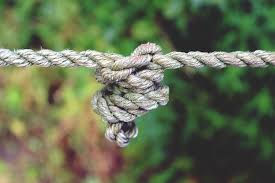Is Light Really as Good as We Think?
- amplemindspace
- Oct 16, 2016
- 4 min read
After the second week of reading Haroun and the Sea of Stories by Salman Rushdie, my opinion of the story has improved somewhat. Instead of being so focused on the annotations, I have enjoyed the book and the characters more, specifically the commentary about Prince Bolo and Princess Batcheat (I touch on this topic further in the blog). It has been easier for me this week to just enjoy the story for what it is, a story (for the most part). While I still think the plot is super predictable, I can understand why Rushdie might have chosen to do so. As I move into the final section of chapters, I will be interested to see my reactions to the completed book.
Each week, the lens of The Hero's Journey continues to play a role in the plot development of the story. In my opinion, the rest of the story is going to have to be significantly more action-packed because it seems like Haroun is only halfway through the journey. I do believe that it will be easier to identify which events go with certain places on the cycle once I have completed the story because I will have a complete sense of everything that happened. I don't feel it would be fair for me to publish my thoughts now on the position of plot points if I wasn't completely sure of how they fit into the rest of the novel. Please stay tuned until next week to actually see my completed Hero's Journey cycle for Haroun and the Sea of Stories.
One thing that interested me most about the three chapters I read last week was in relation to the meta- analysis of Appearance vs. Reality.

Early on in the story, it was revealed that before Rashid tells a story, he ensures his audience that the story is false. Rashid had told Haroun the story of Khattam-Shud, the leader of the Chupwalas. On pg 79, Haroun says "Too many fancy notions are turning out to be true," He is pleasantly surprised at how many things that his father had said weren't true, but are now happening to him or around him. I am sure that the entire experience is very unnerving for Haroun because everything he thought his father has been honest about was a lie. Now that puts Haroun's question of 'What's the point of telling stories that aren't even true?' into question. I can understand how as a son, he would be questioning his father's motives and purposes with story telling. The childhood he has come to know is changing its history right before his eyes. The progression of the "lies", makes me wonder how Rashid would feel if he began noticing his "stories" turn into reality. I am also curious if Rashid knows a story about how they people of Gup will save Batcheat, but only time will tell. Now you might be wondering what that has to do with Appearance vs. Reality. I see a clear connection because to Rashid, the stories he tells are an intentional act. Their "appearance" is fake because they are supposed to lies. The stories are becoming a reality for Haroun. The line between fantasy and real-life that was once clear is now becoming too blurred. Haroun and the stories are now faced with a tug of war between real-life and fantasy and the winner is yet o be discovered.
Again in this week's discussion, there were a lot of insightful conversations. I really was fascinated by my class's opinions on Gup and the people who live in the city being an allusion to society. I especially was interested in how many people in my class said that the government interaction made a mockery of the monarchical system because Prince Bolo was so self-obsessed and focused on saving Princess Batcheat. He did not seem to notice or care that the citizens were more focused on saving the ocean from being polluted by Chup. I think you can see evidence of a similar thing within modern society. Dictators or countries that are communist governments often are not concerned for their people, but instead their leader's personal needs. Towards the end of the discussion, our focus switched to the symbolism of Gup and Chup and the concept of light and dark and bad and good.

That was brought up based on the thought that Batcheat wanted to go the the twilight zone where lightness and darkness or talking and silence meet. As the story wraps up in the next few chapter, I hope that Rushdie provides more thought to that idea.
In terms of this week's discussion, I was a big fan. I liked that there was the opportunity to have pinwheel discussions, but also a large group discussion. I liked that the pinwheels were large enough where there were a variety of ideas, but no one felt pressured to talk as you might if there was only one person from each lens in a group discussion. I hope to continue this method because I feel that it offered an authentic discussion, but there was enough structure so that everything was not in disarray.


Comments